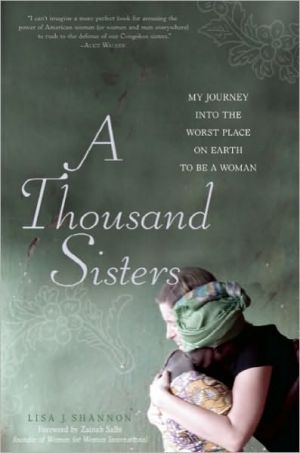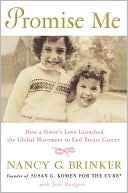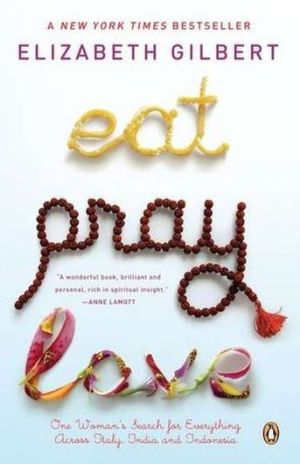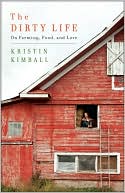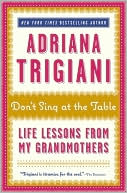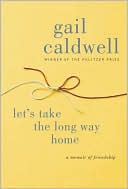A Thousand Sisters: My Journey into the Worst Place on Earth to Be a Woman
Lisa J. Shannon had a good life - a successful business, a fiance, a home, and security. Then one day in 2005, an episode of Oprah changed all that. The show focused on women in Congo, the worst place on earth to be a woman. She was awakened to the atrocities there - millions dead, women raped and tortured daily, and children dying in shocking numbers. Shannon felt called to do something. And she did. A Thousand Sisters is her inspiring memoir. She raised money to sponsor Congolese women...
Search in google:
Lisa Shannon had what some would call a good life—her own business, a successful fiancé, a secure home. Then one day in 2005, shortly after her father’s death, an episode of Oprah changed everything. The show about women in the Congo depicted atrocities too horrible to comprehend: millions dead, women gang-raped and tortured, children starving and dying in shocking numbers. That day Lisa woke up to her dissatisfaction with the “good” life and to her role as an activist and a sister. She created a foundation called Run for Congo Women, with the goal to raise money to sponsor 30 Congolese women. What started as a solo 30-mile run has now grown into a national organization in connection with Women for Women International. Run for Congo Women holds fundraising runs in four countries and ten states, and continues to raise money and awareness. In A Thousand Sisters, Lisa shares firsthand accounts of her experiences visiting the Congo, the women she’s helped, and the relationships she’s formed. With compelling stories of why she remains committed to this cause, Lisa inspires her audience to reach out and help as well, forming a sisterhood that transcends geographic boundaries. Publishers Weekly The subject of a recent New York Times column by Nicholas Kristof, Shannon details how she left her comfortable life in Portland, Ore., to aid women in the Democratic Republic of Congo suffering abuse and death in what has been termed “Africa's First World War.” Running a successful business with her fiancée (who would leave her), Shannon is still “hungry for something all [her] own” and after seeing a show on Oprah about Congolese women, she establishes the Run for Congo Women to raise money to help those suffering. From meeting Congolese women she's sponsored to learning that 90% of the women in one village have been raped, Shannon is exposed to a world remote from her own affluent life. Her painful firsthand accounts of the violence inflicted upon Congolese women by Hutu militants will most interest readers, but the book lacks a detailed overview of the political circumstances surrounding this long war. Shannon provides a much-needed view of how one inspired American can act with hope, drive, and courage to aid women in a part of the world too often overlooked. (Apr.)
\ Library JournalUnable to grieve the death of her father but unwilling to admit depression, photographer Shannon spent her time numbly watching television. Then an episode of Oprah changed her life. A report on "the worst place on Earth to be a woman"—the Congo—awakened her from emotional sleep. She writes here of taking action, forming the Run for Congo Women foundation, which began as a one-woman effort yet eventually grew into a national organization, with races taking place across the United States. Shannon left behind her comfortable life in Portland, OR, to visit the Congo and the sponsored women whom she calls her "sisters." She is admirably honest about her travels there, a place consumed by instability and violence, with an overwhelming need for assistance. The sponsored women all ask for more money, the children are often jaded after hearing so many promises of help from outsiders, and the personal testimonies of violence are so abundant that they seem to run together. Yet Shannon is able to see the good that has been done by Run for Congo Women and encourages others to support their own Congolese "sisters." VERDICT A worthwhile read for those with a nagging feeling that there is something more that they can do for those in need.—Veronica Arellano, Lexington Park, MD\ \ \ \ \ Kirkus ReviewsThe story of one woman's call to ease the atrocious human suffering in the Congo. Settling in Portland, Ore., in her late 20s, photographer Shannon thought her life was in place. Everything shifted, however, when she learned of the war and unthinkable tragedies taking place in the Congo, a conflict borne out of the Rwandan genocide that had become muted in the international community. Already running from her father's death, she decided to run 30 miles and raise 30 sponsorships for Congolese women through Women for Women, an international NGO for female survivors of war. Hoping to spark a movement, she created a foundation called Run for Congo Women and traveled through the country to meet the women she helped sponsor. Shannon presents images of the uncensored horror stories that, to many Congolese, have become regrettably routine: Congo's vile colonial history and the Rwandan genocide spillover that has caused the murders of more than five million Congolese people; children forced to kill and rape in their own communities; daily child deaths from easily curable illnesses; grisly murders of men and children in front of their wives and mothers; families burned alive inside their homes; women who must choose between rape and watching their children starve. The author writes from a place of determination and clarity, despair and breakdown, overwhelming love and hope. Juxtaposing brutality with beauty, Shannon's direct prose is a stirring reminder that these horrors are real and ongoing. An alarming and inspiring message that will hopefully spur much-needed action. Agent: Jill Marsal/Marsal Lyon Literary Agency\ \ \ Publishers WeeklyThe subject of a recent New York Times column by Nicholas Kristof, Shannon details how she left her comfortable life in Portland, Ore., to aid women in the Democratic Republic of Congo suffering abuse and death in what has been termed “Africa's First World War.” Running a successful business with her fiancée (who would leave her), Shannon is still “hungry for something all [her] own” and after seeing a show on Oprah about Congolese women, she establishes the Run for Congo Women to raise money to help those suffering. From meeting Congolese women she's sponsored to learning that 90% of the women in one village have been raped, Shannon is exposed to a world remote from her own affluent life. Her painful firsthand accounts of the violence inflicted upon Congolese women by Hutu militants will most interest readers, but the book lacks a detailed overview of the political circumstances surrounding this long war. Shannon provides a much-needed view of how one inspired American can act with hope, drive, and courage to aid women in a part of the world too often overlooked. (Apr.)\ \
